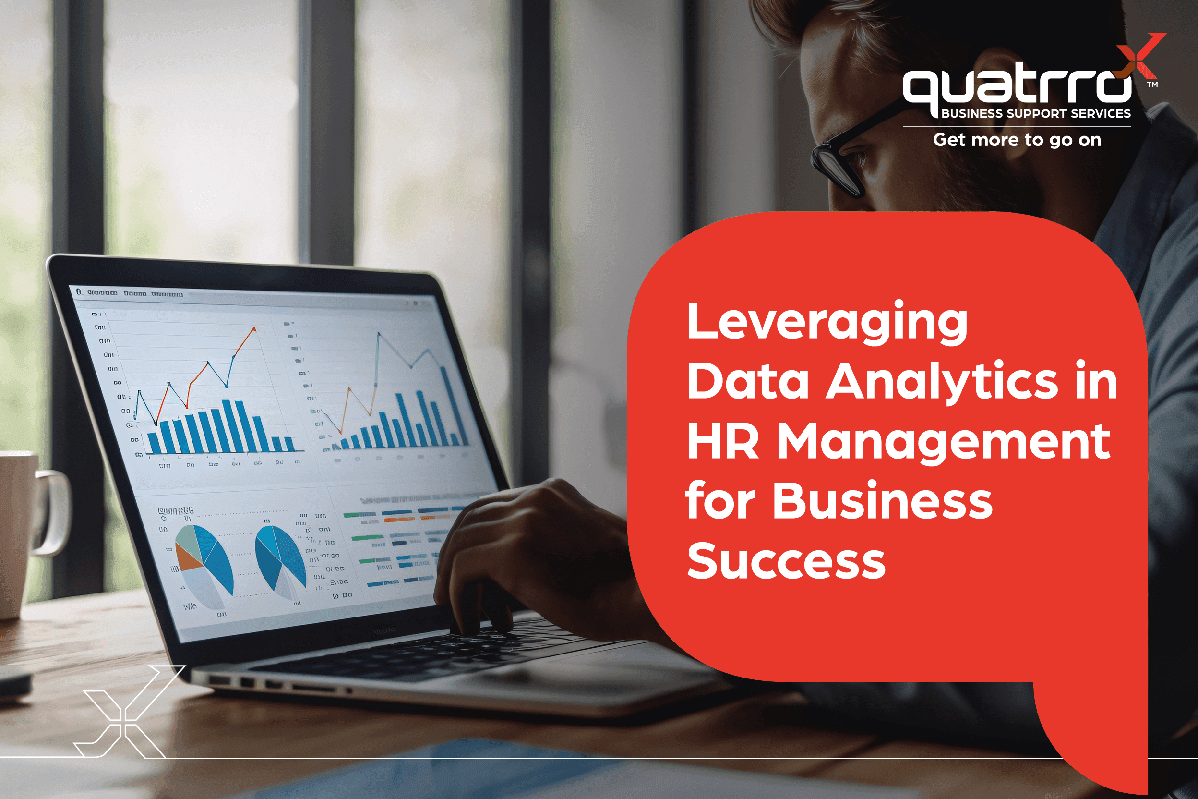Blog Details
Leveraging Data Analytics in HR Management for Business Success
November 7, 2023

Analytics and data have revolutionized the way human resource management (HRM) works. HR professionals are increasingly leveraging technology and data, which is leading to the transformation of the HR management role from what was previously considered an administrative function to now a strategic partner within the organization. Analyzing and using data not only impacts workforce, but also allows HR professionals and other business leaders to make data-driven decisions that contribute to the overall success of the organization. While it is often considered a blessing for those who have realized its potential, it can also be a curse for those who cannot keep up with its rapid growth.
In this blog, we will look at how data analytics impacts HRM. But before we jump into the impacts let’s look some of the key facts and statistics around the importance of HR analytics.
According to a McKinsey report, 70% of company leaders consider people analytics to be one of their top priorities.
According to Zippia, adoption of predictive analysis will be a priority for 60% of HR departments over the next several years, while 53% expect to concentrate on process automation and 47% on artificial intelligence.
The global HR analytics market is expected to reach $6.29 billion by 2027, growing at a compound annual growth rate of 14.2% from 2020 to 2027.
Key Impacts of Data Analytics in HRM
Recruitment and Talent Acquisition:
Finding the right individuals to fill the right roles is one of the main issues that organizations face today. Data analytics has had a significant impact on hiring and talent acquisition success for organizations through monitoring data related to important hiring parameters including cost per hire, application completion rates, hiring quality, hiring source quality, and applicant experience. This enables leaders to assess what is working and what needs improvement so adjustments can be made that will benefit the company.
Measuring Performance:
Human resources departments can leverage data analytics to help leaders set employee key performance indicators (KPIs) providing them with relevant insights that can help the organization, and the employee, improve their performance and efficiency. This data-driven approach not only allows organizations to strategically engage in professional development programs that have a measurable impact on overall team performance, but it also identifies skill gaps and provides targeted training and development opportunities to improve their workforce's skills and knowledge without wasting resources in the wrong areas.
Employee Engagement and Retention:
Identifying the causes of employee turnover is a top responsibility for HR leaders in every organization. However, most often struggle with determining the source and root cause of the issues truly affecting employee retention. These questions can be answered with analytics. It aids in analysis of HR data to discover the root cause of issues affecting employee satisfaction and thus helps leaders to address these issues proactively. This could include implementing targeted strategies such as conducting focused training programs and management coaching sessions to boost retention and reduce turnover. The right data, and analysis of that data, should make it actionable to turn into strategies, initiatives and programs that make a difference for the organization’s employees.
Improve DEAI Initiatives:
Diversity, equity, accessibility, and inclusion are important pillars for establishing and sustaining a thriving workplace. Data analytics can play a key role in boosting workplace DEAI programs. It aids in the identification of areas within the organization where recruiting and promotion rates for under-represented groups are unequal to their peers. Focused solutions for correcting these disparities and enhancing representation can then be devised leveraging the information provided. The result can bring about a more engaged workforce because employees see that their employer cares about them as individuals.
Enabling Facts and Evidence-Based Decisions:
Analytics and data have transformed the way HRM professionals operate. HR departments can now acquire and analyze vast volumes of data using innovative technologies allowing them to make more informed decisions. This data could include everything from employee performance metrics to recruitment statistics. Analytics in HR is becoming more popular as it assists organizations in identifying areas for improvement and supports data-driven decisions. Analytics can also assist HR in forecasting future trends and anticipating potential workforce problems, allowing them to take preventative steps. HR departments may optimize their operations, decrease expenses, and increase overall performance by harnessing the power of data. It is crucial to remember, however, that the success of HR analytics is dependent on the quality of data collected and analyzed.
Finally, the use of data analytics has elevated human resource management from a purely administrative function to a strategic driver of corporate success. HRM, which was traditionally governed by gut and intuition, has changed dramatically as the role of data analysis has evolved. Modern human resource professionals use data and algorithms to drive strategic business decisions that result in effective business outcomes earning themselves a seat at the organization’s strategy table.
Apart from that, it enables HR departments to plan for crucial changes and be ready for whatever the organization faces. It also aids in the establishment of a strategy for optimizing talent investments while effectively monitoring hiring, development, engagement, productivity, accountability, retention, and a variety of other workplace initiatives.
As the economic landscape continues to evolve for all types of organizations, the incorporation of data analytics into HR practices will become even more universally critical for success. So why wait? Contact us today and let us assist you in outlining and implementing an analytical-driven HR strategy for your organization.








